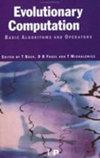基于分解的多目标优化算法的快速收敛性
IF 3.4
2区 计算机科学
Q2 COMPUTER SCIENCE, ARTIFICIAL INTELLIGENCE
引用次数: 3
摘要
资源分配方法(RA)通过保持大量人口和每代更新少量解决方案来提高MOEA/D的性能。然而,大多数关于RA的研究通常集中在不同资源分配指标的性质上。因此,导致RA MOEA/D性能增加的主要因素是什么仍然不确定。本研究在一组广泛的MOP中调查了部分更新策略(PS)的MOEA/D的影响,以深入了解部分更新的MOEA/De和小种群和大种群的MOEA/de的对应关系。我们的工作对种群动力学行为进行了深入分析,考虑到它们的最终近似Pareto集、任何时候的超容量性能、获得的区域和独特的非支配解的数量。我们的结果表明,部分更新的MOEA/D与小种群规模的MOEA/D一样快速地进行搜索,并与大种群规模的MOEA/D一样探索搜索空间。具有部分更新的MOEA/D可以在大多数MOP中以更好的收敛速度缓解与种群规模选择相关的常见问题,如超容量和数量的唯一非支配解的结果所示,以及任何时间性能和经验达到函数所示。本文章由计算机程序翻译,如有差异,请以英文原文为准。
Faster Convergence in Multiobjective Optimization Algorithms Based on Decomposition
The Resource Allocation approach (RA) improves the performance of MOEA/D by maintaining a big population and updating few solutions each generation. However, most of the studies on RA generally focused on the properties of different Resource Allocation metrics. Thus, it is still uncertain what the main factors are that lead to increments in performance of MOEA/D with RA. This study investigates the effects of MOEA/D with the Partial Update Strategy (PS) in an extensive set of MOPs to generate insights into correspondences of MOEA/D with the partial update and MOEA/D with small population size and big population size. Our work undertakes an in-depth analysis of the populational dynamics behaviour considering their final approximation Pareto sets, anytime hypervolume performance, attained regions, and number of unique nondominated solutions. Our results indicate that MOEA/D with partial update progresses with the search as fast as MOEA/D with small population size and explores the search space as MOEA/D with big population size. MOEA/D with partial update can mitigate common problems related to population size choice with better convergence speed in most MOPs, as shown by the results of hypervolume and number of unique nondominated solutions, and as the anytime performance and Empirical Attainment Function indicate.
求助全文
通过发布文献求助,成功后即可免费获取论文全文。
去求助
来源期刊

Evolutionary Computation
工程技术-计算机:理论方法
CiteScore
6.40
自引率
1.50%
发文量
20
审稿时长
3 months
期刊介绍:
Evolutionary Computation is a leading journal in its field. It provides an international forum for facilitating and enhancing the exchange of information among researchers involved in both the theoretical and practical aspects of computational systems drawing their inspiration from nature, with particular emphasis on evolutionary models of computation such as genetic algorithms, evolutionary strategies, classifier systems, evolutionary programming, and genetic programming. It welcomes articles from related fields such as swarm intelligence (e.g. Ant Colony Optimization and Particle Swarm Optimization), and other nature-inspired computation paradigms (e.g. Artificial Immune Systems). As well as publishing articles describing theoretical and/or experimental work, the journal also welcomes application-focused papers describing breakthrough results in an application domain or methodological papers where the specificities of the real-world problem led to significant algorithmic improvements that could possibly be generalized to other areas.
 求助内容:
求助内容: 应助结果提醒方式:
应助结果提醒方式:


